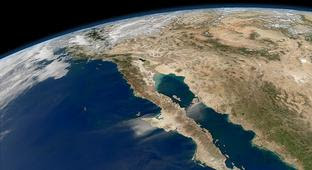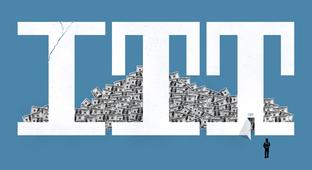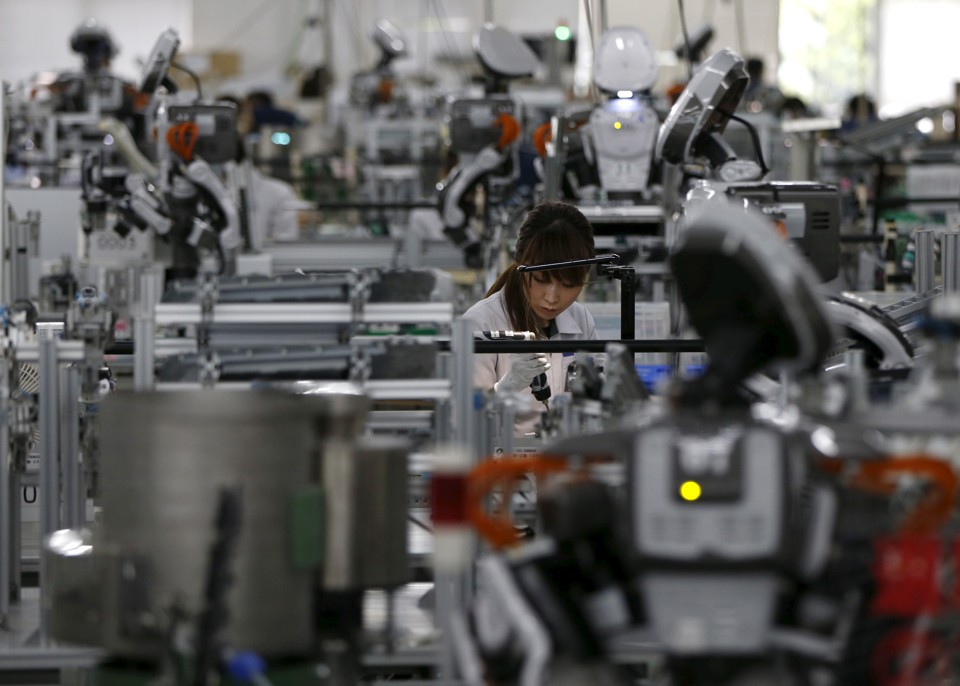The linked article below from the Guardian is another reminder that our relationship to work is not only in question, but in need of a fundamental rethink.
What is usually missed in such reviews of what automation is doing to the nature of work, and what we should do about it, is the lack of considering the basic assumptions that Capitalism forces upon work. An interesting deficiency when one considers that the same technology that brings folks to write these kinds of articles is precisely why Capitalism is no longer viable.
From my perspective, you can't really even begin to think about what work ought to be, aside from being the means to obtain an abstract medium of exchange, if you do not also question the system that has so far defined what labor, and a laborer, is. Especially important if you want to start going beyond mere terms of money as to what one seeks in return for such effort.
So far, the factory mentality has made work be separated tasks performed in the furtherance of mass production for mass consumption. And in this the worker, as skill regurgitator, is simply another purveyor of a commodity. As such we are meant to be disconnected from each other, and focused solely on the factors that impact the continuance of our skill, and the output of same.
As some outputs have common destinations as source material for other processes, we can usually make temporary common cause with others, but in many instances what concerns the continuance of our output often comes in direct conflict with the continuance of other areas of production; usually expressed in not only policies of development, but in rules of social interaction. And if that weren't bad enough, we are also then made to be at odds with each other on the maintenance of every part of the communal necessities that make manageable social organization possible in the first place; all of the common goods that everybody want's to benefit from, but which hardly anyone wants to foot much of the bill for.
And then we have the problem of livelihoods based on the massed production that itself is based on massed consumption. This all has to work within a global system of competition where every costs is a potential nail in the coffin that your commercial activity will be buried in. And as your skill is simply a commodity that must also compete with the offerings of others in every part of the world, as well as skill regurgitation done by automation, what you can demand for it in terms of "money" becomes ever more constrained. So, even as we are urged to want ever more pervasively, we find ourselves all the less able to do so; hoping that others around the globe will take up the slack, even if the planet is already straining to maintain current levels.
The real question here is simply this: Does it really have to be this way? Couldn't work be reconceptualized as of the people, for the people? Work reorganized so that we are the managers and the producers? Cooperating within city states to share all of the tasks that make a community possible? Cooperation that would necessarily reconnect us to each other to make daily life possible?
With clean energy, and a mix of automation with personal involvement we could do away with mass production for mass consumption, building the basics for not only what keeps a community going, but what each of us, making the end use item ourselves, needs and wants for a fulfilling life. Work then would be, in a very real sense, not only our connections to each other, but our lasting connections to the tools we create and use.
Make no mistake. This is not the description of some pie in the sky utopia. It would be argumentative, slow, and frustratingly difficult even to implement, let alone keep going. By any measure it wouldn't be any easier to do what we're going now, it would simply be a great deal better for us, personally and socially, not to mention a great deal better for the planet as a whole. And it would also recognize that, difficult though it might be, it would still be a far sight better than the change that will be forced upon us if we continue to keep pretending we can continue as we are indefinitely.
With robots, is a life without work one we'd want to live?
See Also:
























